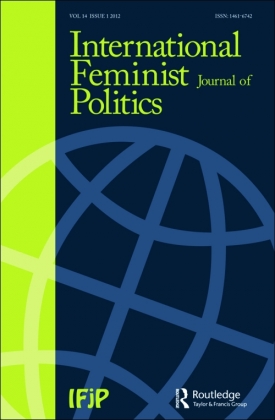
March 29, 2017
Srila Roy, Department of Sociology, University of the Witwatersrand, Johannesburg, South Africa
If co-optation is a loss of feminism – about a feminist subject or strategy within a social movement
that has moved to other movements and institutions not thought of as feminist – then we have to
acknowledge that feminism has never been about a subject singularly produced through gender.
Theories of intersectionality or postcolonialism also reveal a feminism that is not purely articulated
by one social movement solely based on gender, but a gendered subject intimately co-constructed
with other social movements and institutions.
These are the words of Inderpal Grewal, interviewed here. As Professor of Women’s,
Gender and Sexuality Studies at Yale University, USA, Inderpal’s work has long explored
themes around co-optation. With her book, Transnational America (2005), she was one of
the first feminists to theorize the manner in which ideas of women’s choice and freedom
are co-opted by the market.
Inderpal and I met on a hot July afternoon in Delhi to talk about how her work
addresses the issue of co-optation, taking as a starting point this thematic section of
the International Feminist Journal of Politics entitled “The Co-optation of Feminisms.”
Besides her recently edited volume on NGOs, Inderpal had previously conducted
research on NGOs in Punjab and found them to be, in her own words from this interview,
“so diverse that I couldn’t make sense of them as a coherent enterprise.” I was in India
interviewing feminist and queer activists and NGOs for a long-standing project on the
changing terrain of feminist politics in India, so our conversation began with the polarized
understandings of NGOs and “NGOization” (Bernal and Grewal 2014) today, leading
to further reflections on co-optation more broadly.